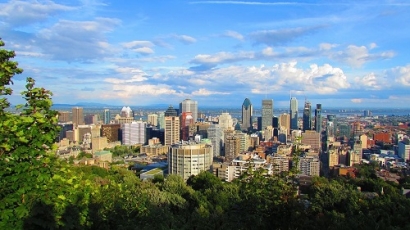
The organic waste biomethanation center will have the ability to process 60,000 tons of organic material each year, on the east side of Montreal Island. This plant will recover organic waste produced by nearly 1.5 million inhabitants of the east side and the city center and process it into biomethane. SUEZ will equip the plant with innovative technologies allowing for the anaerobic digestion of organic material to generate biogas, which will then be purified using high-performance membranes to produce biomethane. Expected to be commissioned in 2022, the facility will be operated and maintained by SUEZ for a period of five years.
“Recovering household waste into new resources is as much an economic issue as an environmental one: it helps preserve natural resources, curb greenhouse gas emissions and reduce the volumes of waste stored. Cities like Montreal are now playing a key role in the circular economy by creating local recovery cycles. SUEZ is proud to support the City of Montréal in its transition towards a new local, sustainable, and low-carbon energy model,” said Bertrand Camus, Chief Executive Officer of SUEZ
The new plant will convert organic material into biomethane, producing enough renewable gas to power around 3,600 households.
This plant will contribute to the City of Montréal’s efforts to reduce greenhouse gas emissions. First, it will significantly reduce the distances travelled in treating this waste, which is currently taken to a facility around 50 kilometers (31 miles) northeast of Montreal. Moreover, the new plant will convert the organic material into biomethane, a renewable energy that offers the same advantages as natural gas. Non-polluting and locally produced, the biomethane will be injected into the local gas network.
This facility is the second organic waste treatment centers planned by the City of Montréal to recover and divert away its organic waste from landfills by 2020. In April 2019, SUEZ was selected by the City of Montréal to design, build and operate the city’s first organic waste treatment center, located in the Saint-Laurent borough.
“Our concern for the environment is a major reason why the City of Montréal wants to become a leader in the use of biogas,” said Valerie Plante, Mayor of Montreal. “Biogas plants significantly curb the greenhouse effect by capturing this harmful gas and using it as fuel. Biogas generation helps cut reliance on the use of fossil fuels, such as oil and coal.”

